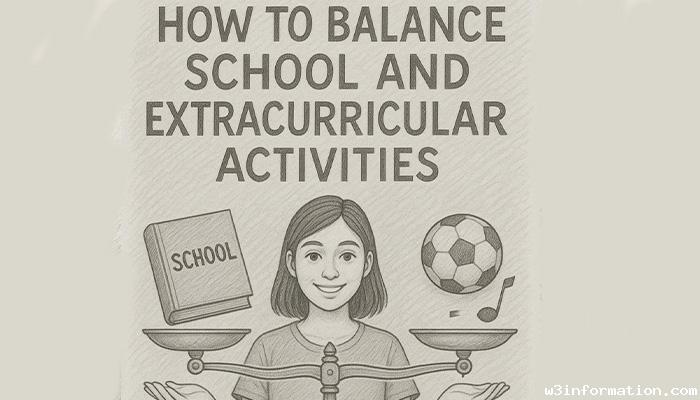How to Balance School and Extracurricular Activities
Students who learn effective strategies can successfully manage both academic responsibilities and extracurricular activities despite initial feelings of being overwhelmed. Students must develop effective time management skills and establish priorities to achieve balance between academic success and personal interests.
School Assignments
Begin by developing a practical schedule that fits your daily routine. A planner or digital calendar serves as a useful tool to manage school assignments and activities like practice sessions and club meetings alongside social events. Dividing big assignments into smaller parts helps students maintain their academic and extracurricular schedules more efficiently.When students plan their tasks in advance they can manage their time effectively and prevent any last-minute stress.

Mutual Understanding
The process of prioritizing tasks becomes crucial for managing multiple responsibilities. Students need to develop the ability to identify when schoolwork should be prioritized above other activities during exam periods or major deadlines. Choosing carefully allows for more meaningful participation while preventing burnout.When selecting extracurricular activities students should focus on those that spark their interest and vitality instead of joining numerous activities solely to build an impressive resume. Effective communication is also crucial. By keeping teachers, coaches, and club leaders aware of future busy periods or potential scheduling conflicts students can build mutual understanding and adaptability. Students who show responsibility and respect toward their commitments often receive special consideration from adults.
Self-care
Self-care should not be overlooked. Students need adequate sleep and healthy food while ensuring they have time to relax in order to sustain their physical and emotional health. When students fill their schedules without breaks they become exhausted which negatively impacts their school performance and activity participation. Students need to understand that saying "no" is acceptable when necessary so they can concentrate on their priorities.It is essential to maintain an optimistic mindset and remain flexible. When everything seems difficult to balance you'll learn resilience by seeing setbacks as educational moments. Through regular practice students build strong organizational abilities and achieve a balanced lifestyle which benefits them throughout their lives after school.
Conclusion
To successfully balance school with To successfully balance school with extracurricular activities students must prioritize thoughtful planning alongside clear priorities and open communication while maintaining self-care. students must prioritize thoughtful planning alongside clear priorities and open communication while maintaining self-care. Students who master these skills can experience both academic fulfilment and success and maintain their outside activities and passions.
 DIY Holiday Decor Ideas on a Budget
DIY Holiday Decor Ideas on a Budget
 How to Create a Healthy Meal Plan for the Week
How to Create a Healthy Meal Plan for the Week
 Discover your top 10 comforting meals to enjoy during the winter season
Discover your top 10 comforting meals to enjoy during the winter season
 Tips for Stress-Free Holiday Travel
Tips for Stress-Free Holiday Travel
 Mobile Video Editing Apps to Try
Mobile Video Editing Apps to Try
 Mobile Health Apps: Best of 2025
Mobile Health Apps: Best of 2025